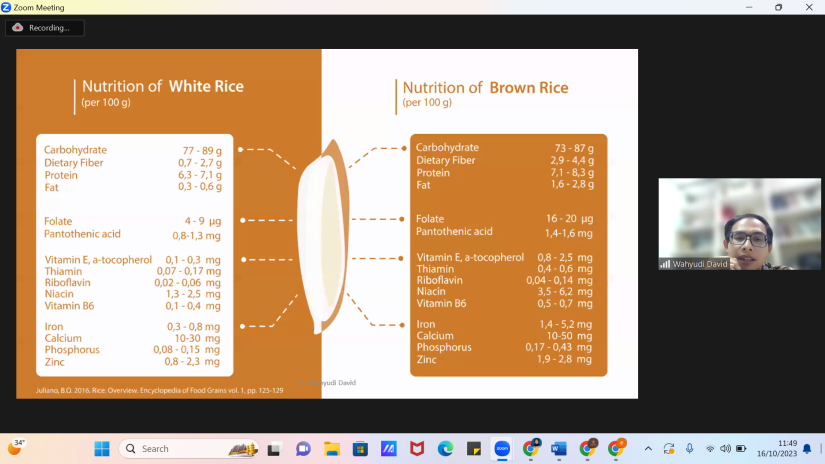
Organic farming is a cultivation business that seeks to maintain the sustainability and health of the soil, ecosystem, and people involved. The progress of organic farming in Indonesia began in the early 1980s, initiated by WALHI. Therefore, the Agricultural Economics and Agribusiness Study Program invited Dr. Wahyudi David from The International Society of Organic Farming Research (ISOFAR) to a guest lecture with the theme Organic Production Scheme for Better Food Culture on Monday, 16th October 2023.
Following existing agricultural developments, Indonesia has begun to try to adopt organic farming schemes, so currently, Indonesia has organic cultivation standards, as stated in SNI 6729 2016. SNI 6729 2016 requires a conversion system, prevention of contamination during cultivation, selection of plants and varieties (breeds), presence of pests, livestock rearing, post-harvest handling, processing (CPPOB), including distribution, packaging, pest control, and traceability documentation.
Apart from that, PERKA BPOM NO 1 2017 Supervision of processed organic products is also one of the guidelines for carrying out organic agricultural cultivation practices.
Of course, to support organic cultivation practices, a transparent organic guarantee scheme is needed. The Sekma will include regulatory standards, certification, and accreditation.
In 2020, the central government included organic products as one of the agricultural products considered in national development, with a portion of 20%. Farmers must be subjects, and we, as consumers, must take responsibility for what farmers grow. We have a decision to change where the product can be changed later by the farmer.
Closing the guest lecture session, Dr. Wahyudi David advised if you don’t become a producer, at least become an organic consumer.
